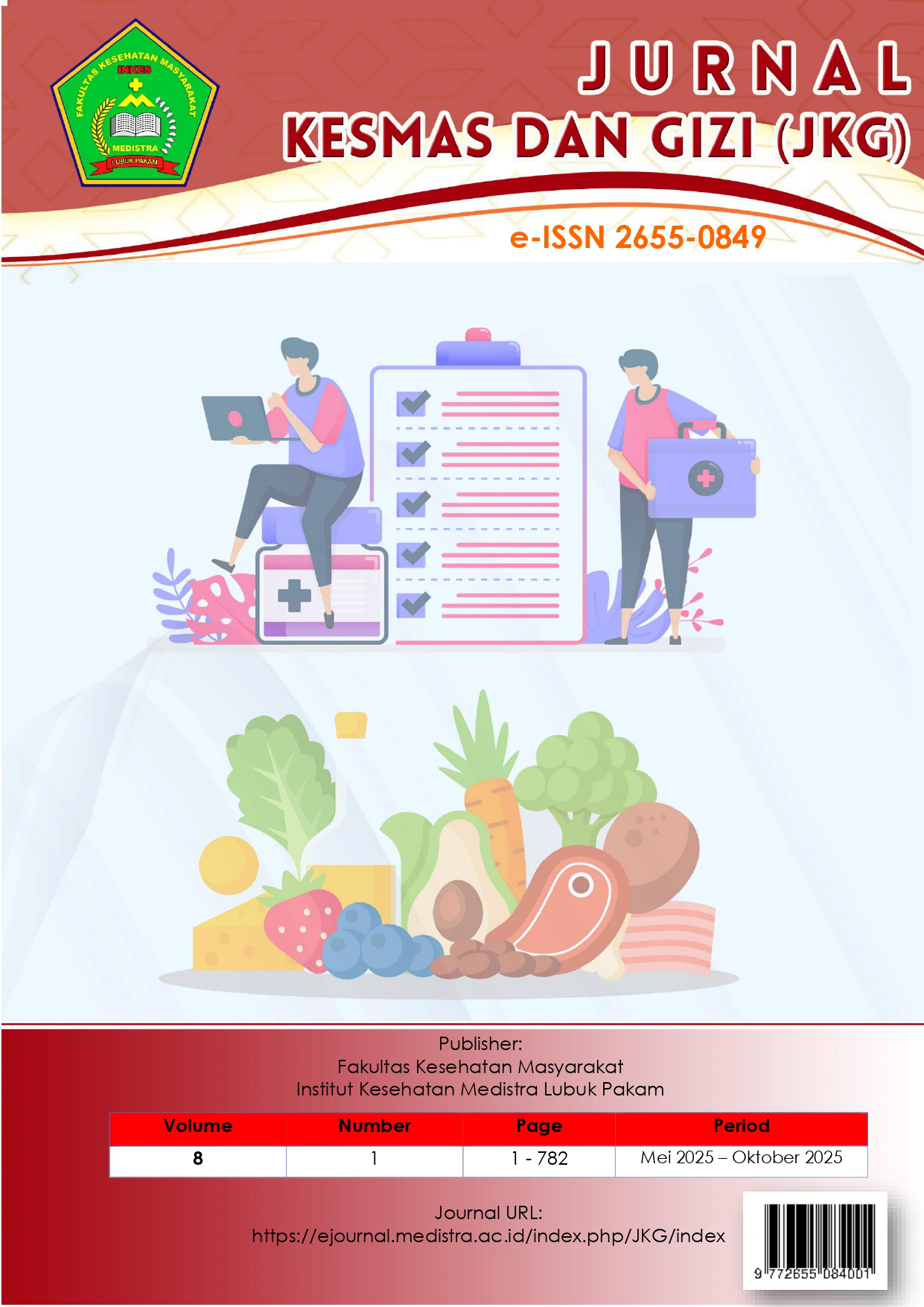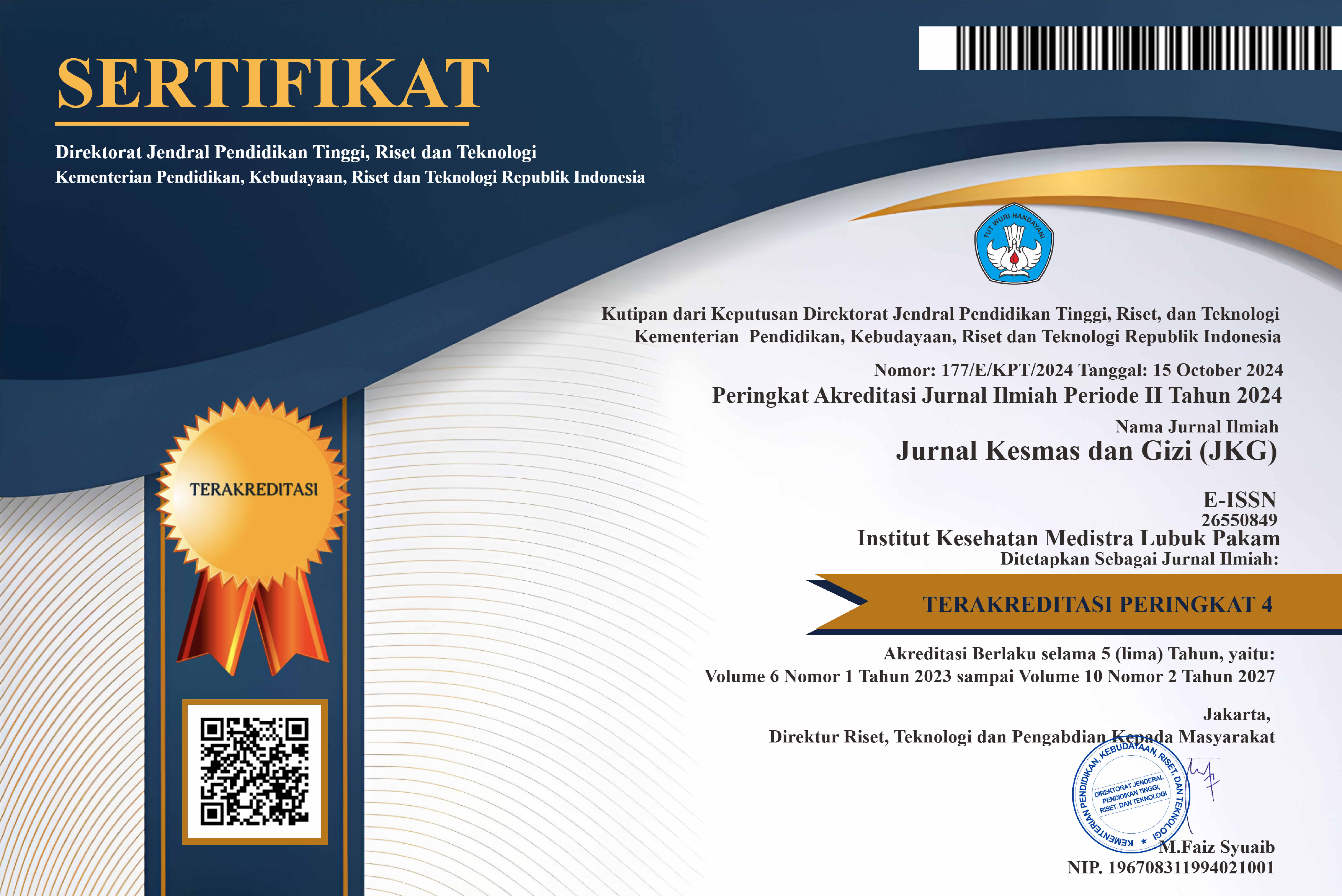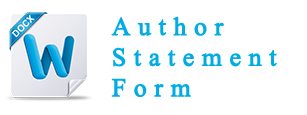The Relationship Between Maternal Nutritional Knowledge and Maternal Behavior on the Nutritional Status of Children Under Five at the Blangkejeren City Health Center
DOI:
https://doi.org/10.35451/8jhnk558Keywords:
Toddlers, Nutritional Knowledge, Behavior, Nutritional StatusAbstract
The problem of undernutrition and malnutrition among children under five remains a major public health challenge in Indonesia, including in the working area of the Blangkejeren City Health Center. This condition is influenced by inadequate dietary intake and the high prevalence of infectious diseases among toddlers. One of the key determinants in preventing nutritional problems is the role of mothers, particularly their level of knowledge and behavior in providing balanced and nutritious meals to their children. Limited maternal understanding of healthy eating patterns may reduce attention to the nutritional needs of toddlers, thereby leading to suboptimal feeding practices. This study aimed to examine the relationship between maternal nutritional knowledge and maternal behavior with the nutritional status of children under five at the Blangkejeren City Health Center. A quantitative research approach with a cross-sectional design was applied. The population consisted of all mothers who had children under five within the health center’s working area, with a total sample of 22 respondents. Data were analyzed to describe the distribution of knowledge, behavior, and nutritional status, as well as to test the relationships among variables. The findings revealed that the majority of mothers had good nutritional knowledge (77.3%), frequently practiced balanced feeding behavior (63.6%), and most children under five had normal nutritional status (72.7%). Statistical tests indicated significant associations between maternal nutritional knowledge and children’s nutritional status (p = 0.000), as well as between maternal behavior and children’s nutritional status (p = 0.000). These results suggest that the better the mothers’ knowledge and behavior regarding nutrition, the higher the likelihood that their children will achieve normal nutritional status.
Downloads
References
[1] F. Hayu Palupi, Y. Renowening, dan H. Mahmudah, “Maternal Knowledge About Nutrition Relationship with Incidence of Stunting in Toddlers Aged 24-36 Months,” Jurnal Kesehatan Mahardika, vol. 10, no. 1, 2023
[2] World Health Organization (WHO), Joint Child Malnutrition Estimates (JME), data & indikator global mengenai stunting, wasting, dan overweight, 2024 (update portal WHO).
[3] UNICEF, Levels and trends in child malnutrition: Joint malnutrition estimates 2019 (laporan ringkasan dan dataset negara untuk indikator stunting/wasting/overweight).
[4] UNESCO, Education and nutrition / School health and nutrition (pembahasan hubungan gizi anak, pendidikan, dan pembangunan), Global Education Monitoring, laman kebijakan, 2024–2025.
[5] Y. Chen et al., “Maternal empowerment, feeding knowledge, and infant/child feeding practices and nutritional outcomes” (artikel penelitian — akses PubMed Central), 2024.
[6] C. T. Andersen et al., “Maternal and child nutrition services associated with child nutritional outcomes” (studi evaluatif terkait layanan gizi ibu-anak), 2023. (akses tersedia melalui PubMed Central).
[7] World Health Organization, UN Decade of Action on Nutrition 2016–2025: Introduction (konteks kebijakan global tentang gizi dan pentingnya intervensi sejak hamil sampai usia 2 tahun), 2019.
[8] T. Mahjabin, M. Hossain, M. R. Hasan, et al., “Effect of Mother’s Nutritional Knowledge and Hygiene Practices on Child Nutritional Status and Dietary Diversity,” [International Journal, full text in PubMed Central], 2022.
[9] F. Haryanti, et al., “Maternal Knowledge on Nutrition-Focused Nurturing Care and Associated Factors,” International Journal / PubMed Central (artikel 2024, open access), 2024.
[10] N. S. Zakaria, “Association of Mothers’ Child-feeding Knowledge, Attitude and Practices with Nutritional Status of Under-five Children in a Fishing Community,” Food Research / regional journal (open access), 2022.
[11] H. F. Mahjabin, M. Hossain, M. R. Hasan, et al., “Effect of Mother’s Nutritional Knowledge and Hygiene Practices on Child Nutritional Status and Dietary Diversity,” International Journal (open access), 2022. (akses: https://pmc.ncbi.nlm.nih.gov/articles/PMC12089656/)
[12] F. Haryanti, et al., “Maternal knowledge on nutritional-focused nurturing care and associated factors,” Journal (open access), 2024. (akses: https://pmc.ncbi.nlm.nih.gov/articles/PMC11350353)
[13] Y. B. Prasetyo, et al., “The effect of mothers' nutritional education and knowledge on child feeding practices,” International Journal of Childhood Education & Parenting, 2023.
[14] A. Talib Eidan, et al., “Effect of a Nutritional Education Program on Mother Knowledge regarding their children nutritional status,” Journal of Obstetrics and Gynaecology Research (or similar open-access report), 2024.
[15] Systematic review: parenting/feeding practices and child growth — “A systematic review of parenting and feeding practices, children's feeding behavior, and growth (Asia/related contexts),” 2024. (akses: https://www.tandfonline.com/doi/full/10.1080/13548506.2024.2421461.
[16] I. Nuraeni, “Overview of Determinants of Toddlers Nutritional Status in Cisayong Subdistrict, Tasikmalaya Regency in 2022-2023,” Jurnal Kesmas dan Gizi (JKG), vol. 7, no. 2, pp. 237-243, 2025. [Online]. Available: https://doi.org/10.35451/jkg.v7i2.2610
Downloads
Published
Issue
Section
License
Copyright (c) 2025 Wira Maria Ginting, Ferawati Br Hutabarat

This work is licensed under a Creative Commons Attribution 4.0 International License.
Copyright in each article is the property of the Author.



























